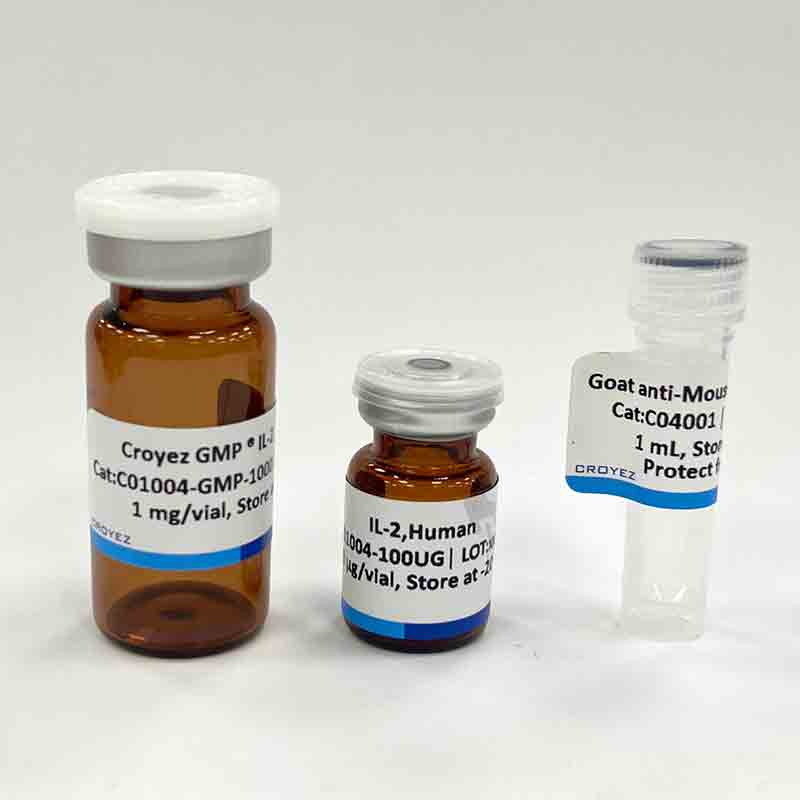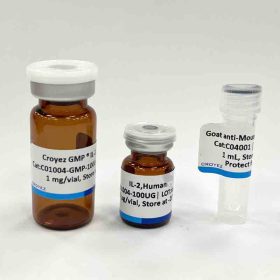The interleukin 4 (IL4, IL-4) is a cytokine that induces differentiation of naive helper T cells (Th0 cells) to Th2 cells. Upon activation by IL-4, Th2 cells subsequently produce additional IL-4 in a positive feedback loop. The cell that initially produces IL-4, thus inducing Th2 differentiation, has not been identified, but recent studies suggest that basophils may be the effector cell. It is closely related and has functions similar to Interleukin 13.
Sequence:
MHIHGCDKNHLREIIGILNEVTGEGTPCTEMDVPNVLTATKNTTESELVCRASKVLRIFYLKHGKTPCLKKNSSVLMELQRLFRAFRCLDSSISC
TMNESKSTSLKDFLESLKSIMQMDYS with polyhistidine tag at the C-terminus
Source:
Escherichia coli
Endotoxin Test:
<0.1 EU per 1 μg of the protein by the LAL method.
Activity:
Measure by its ability to induce HT-2 cells proliferation. The ED50 for this effect is <1 ng/mL. The specific activity of recombinant mouse IL-4 is approximately >1 x 106 IU/mg.
Purity:
≥98% as determined by SDS-PAGE and HPLC.
Purified by Ni-NTA chromatography
Formulation:
The protein was lyophilized from a solution containing 1X PBS, pH 7.4.
Reconstitution:
It is recommended to reconstitute the lyophilized protein in sterile H2O to a concentration not less than 100 μg/mL and incubate the stock solution for at least 20 min to ensure sufficient re-dissolved.
Storage:
Lyophilized protein should be stored at -20°C. Upon reconstitution, protein aliquots should be stored at -20°C or -80°C.
Note:
Please use within one month after protein reconstitution.





